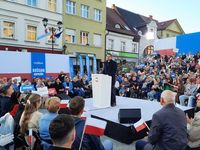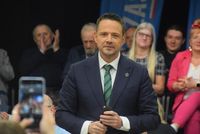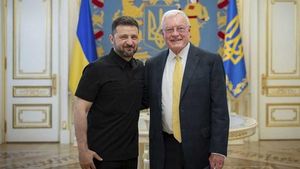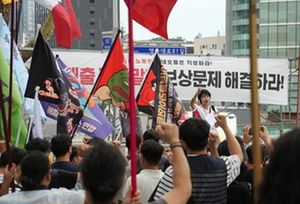Rafał Trzaskowski, the 53-year-old mayor of Warsaw, met with residents of Gniezno on March 28, 2025, as he embarks on his second attempt to run for the presidency of Poland. Trzaskowski, who has held the mayoral position since 2018, previously lost to Andrzej Duda in the second round of the 2020 elections. During his meeting, he expressed his belief that the Polish electorate voted for change in 2023, rejecting a government that he claims served only its own interests.
Trzaskowski's candidacy is fueled by a growing frustration among Poles regarding the slow pace of reforms. He stated, "However, like many of you, I feel frustration over the slow pace of reforms. Too often, good initiatives are blocked or become subjects of disputes and quarrels, which makes Poland not utilize its great potential and become increasingly divided, ultimately less prepared for the future." This sentiment resonates with many voters who are eager for decisive leadership.
In light of the ongoing conflict in Ukraine and shifting global dynamics, Trzaskowski is advocating for a "Pact for Security," outlining five key principles. These include ensuring that security issues are removed from the current political disputes, convening the National Security Council with the President and all political forces at least once every 60 days, increasing defense spending to 5% of GDP, establishing a "Second Mission" Center to engage veterans and former officers in training specialists, and mandating that at least 50% of funds for military modernization be invested in Polish industry.
Trzaskowski's proposals, however, are not without controversy. His suggestion to reduce health insurance contributions for entrepreneurs has drawn criticism from his opponents. Karol Nawrocki, a prominent figure in the opposition, argues that such a move could lead to mass privatization of hospitals. He stated, "Poles have the right to access free healthcare, and the incompetence of the current government cannot be replaced by attempts to privatize Polish hospitals." This reflects a broader concern among voters about the future of the healthcare system in Poland.
As the election date approaches, Trzaskowski has expressed his willingness to engage in rational debates with other candidates, particularly regarding contentious issues such as health insurance contributions. He remarked, "I am always ready for discussion and debate, only for a rational debate." This openness to dialogue may resonate with voters who are looking for transparency and accountability from their leaders.
Despite Trzaskowski's assurances, concerns about the healthcare system remain prevalent. Wojciech Konieczny, Deputy Minister of Health from the Left, highlighted that the National Health Fund (NFZ) is facing a deficit exceeding 20 billion złoty. He emphasized, "In the Polish health care system, more money is needed, not less," indicating that the proposed reduction in health insurance contributions could exacerbate existing financial challenges.
The healthcare crisis has become increasingly acute, with the number of patients waiting for specialist appointments rising by 70% in just two years. Hospitals are struggling to maintain their financial viability, with facilities like the one in Bielsko-Biała awaiting the disbursement of 160 million złoty for the development of its oncology ward. Przemysław Drabek, a member of the ruling party, noted, "This hospital is losing its capacity, and when it collapses, the entire system in the region is at risk." This highlights the urgency of addressing the healthcare funding issue.
As the Ministry of Finance continues to delay the approval of the NFZ's budget plan for the year, the pressure on the healthcare system intensifies. The ongoing discussions around health insurance contributions and their implications for public health services will likely be central to the upcoming election debates.
In conclusion, Rafał Trzaskowski's campaign is shaping up to be a critical moment for Polish politics. With a focus on security, healthcare reform, and a commitment to engaging with the electorate, he aims to present a vision for a more united and prosperous Poland. As voters prepare to head to the polls, the stakes have never been higher for the future of the nation.






